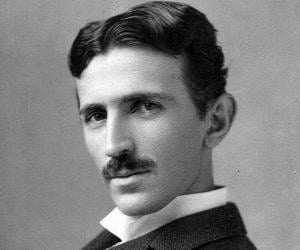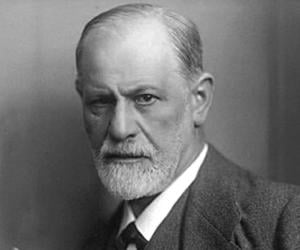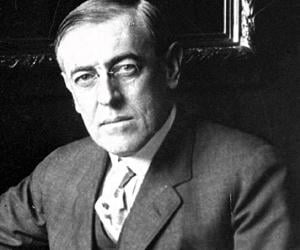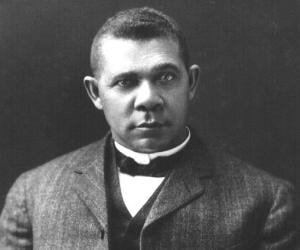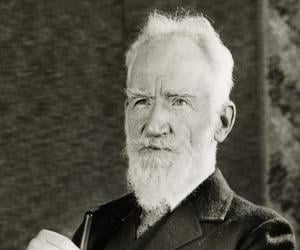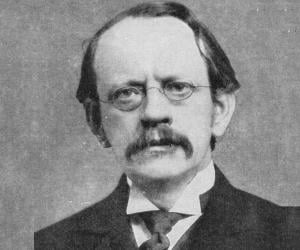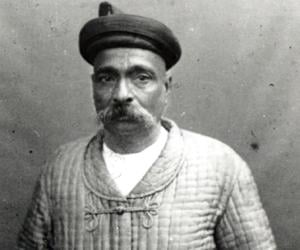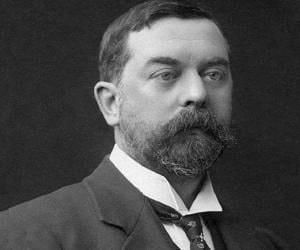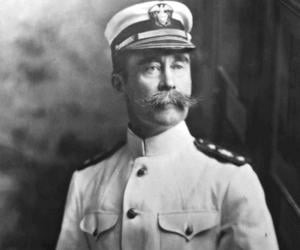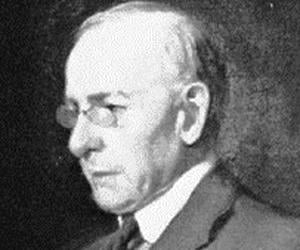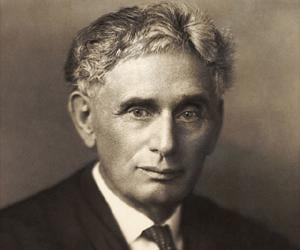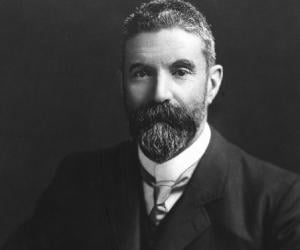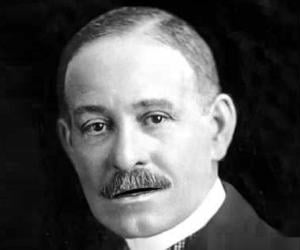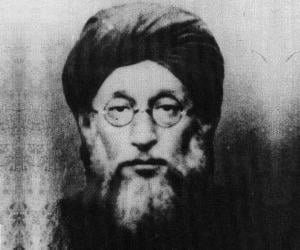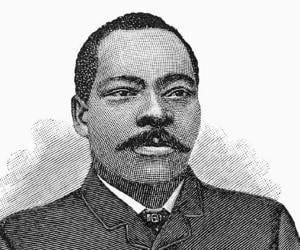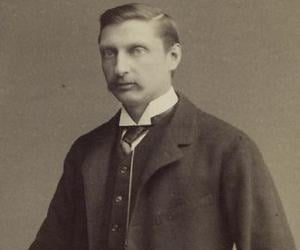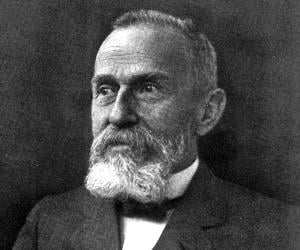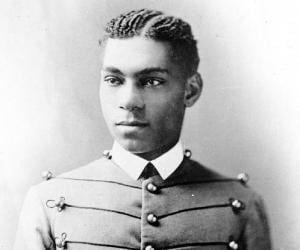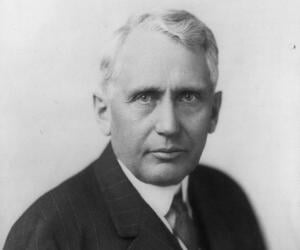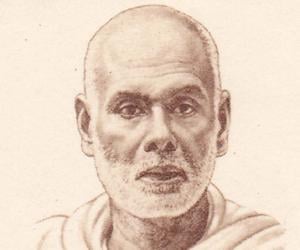Inventor, engineer and futurist, Nikola Tesla, is best remembered for his contribution to the development of the modern alternating current (AC) electricity supply system. A prolific inventor, he had around 300 patents for his inventions. Even though he earned a considerable amount of money, he had poor money management skills and died a poor man.
Regarded as the father of psychoanalysis, Sigmund Freud was a neurologist. Despite suffering criticism, psychoanalysis remains influential in the fields of psychology and psychiatry; such is the influence Freud has on humanities. Scholars believe that Freud is one of the most influential personalities of the 20th century and that his impact is comparable to that of Marxism and Darwinism.
From presidential cabin of Princeton University to presidential office of the White House, Woodrow Wilson ushered a series of progressive reforms that changed the American politics forever. The 28th President of USA, Woodrow Wilson introduced several ground-breaking policies including the Federal Reserve Act. He played a key role in founding the first intergovernmental organisation—the League of Nations—for which he was awarded the Nobel Peace Prize.
Nobel Prize-winning playwright and author George Bernard Shaw was best known for his realism and his support for women’s rights and socialism. His ideas gave rise to the word “Shavian.” His drama Pygmalion inspired the musical My Fair Lady. His other notable works include Candida and Man and Superman.
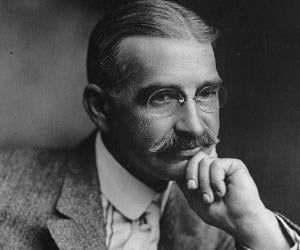
L. Frank Baum was an author remembered for writing children's books including The Wonderful Wizard of Oz, which inspired the 1902 Broadway musical and the 1939 live-action film of the same name. His works anticipated the invention of gadgets like TV that would be invented later. In 2013, Baum was made an inductee of the Chicago Literary Hall of Fame.
J. J. Thomson was a British physicist credited with the discovery of the electron, the first subatomic particle to be discovered. He was awarded the Nobel Prize in Physics in 1906 for his work on the conduction of electricity in gases. In 1884, he was appointed Cavendish Professor of Physics at the University of Cambridge.
John Singer Sargent, an artist active in the late 19th and early 20th centuries, was considered the "leading portrait painter of his generation." Prolific in his output, he created more than 2,000 watercolors and around 900 oil paintings. He also made numerous sketches and charcoal drawings. He painted with remarkable technical acumen and was internationally known for his expertise.
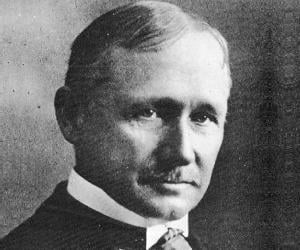
American inventor, mechanical engineer and an accomplished tennis and golf player, Frederick Winslow Taylor, regarded as the father of scientific management, sought to improve industrial efficiency. His approach on scientific management, referred to as Taylorism, has significantly influenced development of industrial engineering and production management. His monograph, The Principles of Scientific Management, laid out his views on principles of scientific management.
US naval officer Robert Peary is credited with discovering the North Pole, with explorer Matthew Henson as his attendant, though he was challenged by Frederick A. Cook, who claimed to have achieved the feat independently before him. Later, diary entries revealed Peary may have been 100km short of the pole.
Louis Sullivan was an architect who became only the second person to be honored with a posthumous AIA Gold Medal. Dubbed the father of modernism and the father of skyscrapers, Sullivan contributed immensely to the Chicago School of architecture. He is also credited with mentoring Frank Lloyd Wright who went on to become a respected architect in his own right.
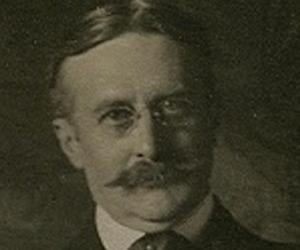
The second prime minister of Australia and Federation movement leader Alfred Deakin had developed an interest in literature and philosophy and had written several pieces of drama and poetry while studying to be a barrister. He later joined the Liberal Party. He spent his final years struggling with memory loss.
Daniel Hale Williams was a general surgeon known for performing the first documented, successful pericardium surgery in the US in 1893. Born to interracial parents, he faced numerous struggles in his journey to become a physician. He later founded the first non-segregated hospital in the United States, Chicago's Provident Hospital. He also founded a nursing school for African Americans.
Ahmed Raza Khan Barelvi, also known as Ala-Hazrat, was a renowned Islamic scholar and an Urdu poet. Born in Bareilly, British India, he belonged to a family of Rohilla Pushtuns who had migrated from Qandahar. He wrote about various subjects such as philosophy, science, and astronomy.
Granville Woods was 10 when he began working at a machine shop, while continuing his studies at a night school. He grew up to become a steam locomotive engineer and earned the nickname the Black Edison for his countless inventions, most of which were related to electrical systems for railways.
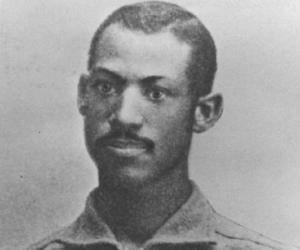
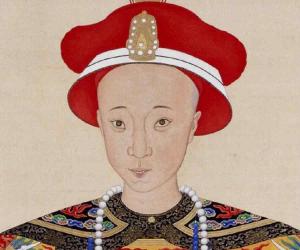
Tongzhi Emperor was the Emperor of the Qing dynasty who reigned from 1861 to 1875. The predecessor of Xianfeng Emperor, Tongzhi was the eighth Qing emperor to reign over the Eighteen Provinces. Tongzhi was a puppet emperor whose reign was overshadowed by the influence of his mother Empress Dowager Cixi over state affairs.
The son of a musician, Emil Kraepelin, remembered as the founder of psychiatry, was the first to differentiate between dementia praecox, now known as schizophrenia, and manic-depressive psychosis. His classification of mental illnesses influenced much of the research on the subject in the 20th century.
Then first Black to have graduated from West Point’s Military Academy, Henry Ossian Flipper was born to slave parents. He also became the first African-American to command US Army troops. He was dismissed unjustly on embezzlement charges and later worked as a civil engineer. His name was cleared posthumously.
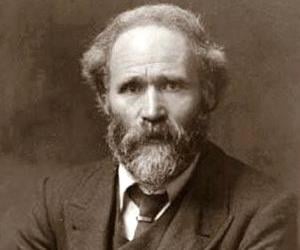
Scottish-born labor leader and trade unionist J. Keir Hardie is best remembered for establishing the Labour Party of the UK. He also supported the suffragist revolt organized by activist Emmeline Pankhurst. A pacifist, he objected to Britain’s participation in World War I but eventually ended up being sidelined by his party.
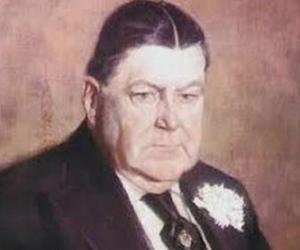
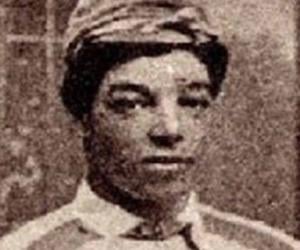
Widely known as Scotland’s first Black footballer, Andrew Watson was also the first Black player to play international association football. The son of a Guyanese woman and a Scottish plantation owner, he moved to Britain with his father as a child. He was also an engineer and a wholesale business owner.
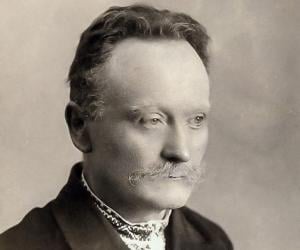
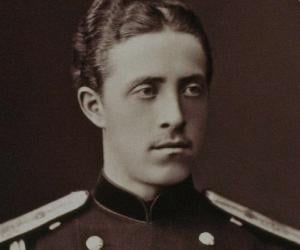
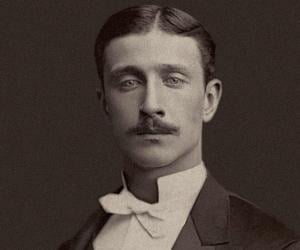
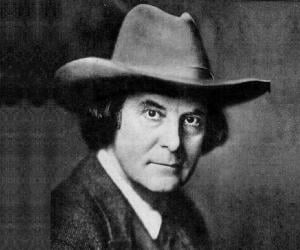
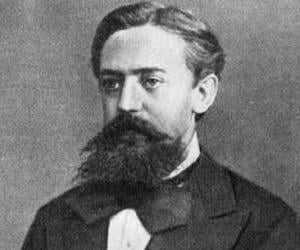
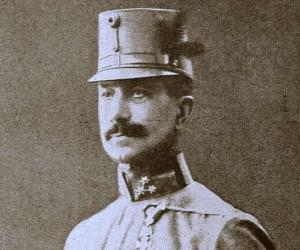
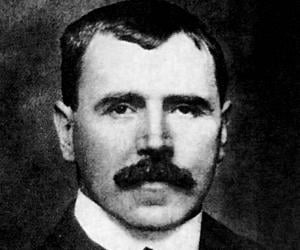
A major figure of the Glasgow school of painting, Irish painter John Lavery is remembered for his realism in his portraits, landscapes, and war paintings. Though made the official artist for World War I, health issues prevented him from fulfilling the role. He was, nevertheless, knighted for his achievements.
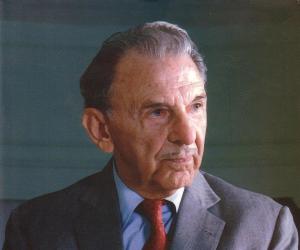
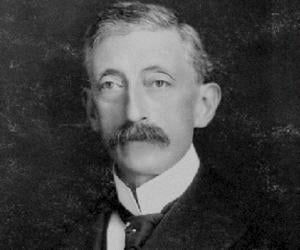
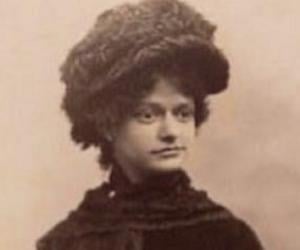
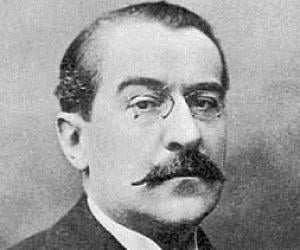
Born in Travancore in India, Narayana Guru was the son of a teacher and studied in a gurukula. He grew up to lead a social reform movement against the caste system that he saw in erstwhile Kerala. He believed in the motto One Caste, One Religion, One God for All.
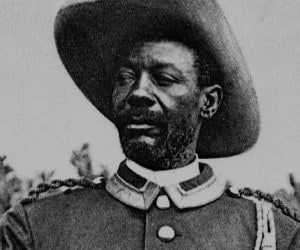
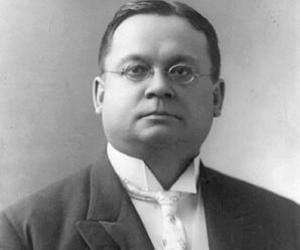
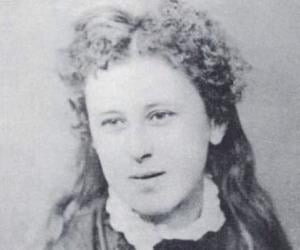
British author Violet Page wrote under the pseudonym Vernon Lee and dressed without inhibitions. Rumors claimed she was a lesbian, though she never stated so. The poet and critic is best remembered for her work on aesthetics, Belcaro. She was also a skilled harpsichord player and a true-blue feminist.
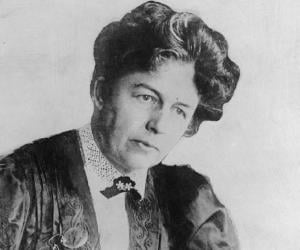
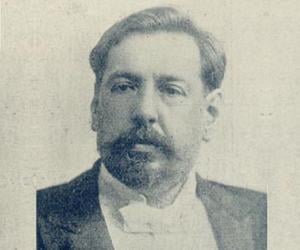
José Batlle y Ordóñez was a Uruguayan politician best remembered for his service as the President of Uruguay on two occasions. He held the president's office from 1903 to 1907 and again from 1911 to 1915. He was also appointed as the acting president in 1899. Batlle is credited with modernizing the country by introducing extensive welfare state reforms.
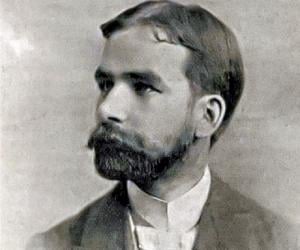
Robert Stanley Weir was a Canadian judge and poet. He is best known for writing the English lyrics to the national anthem of Canada, O Canada. He was trained as a teacher and lawyer. Over the course of his successful legal career, he was appointed a municipal court judge. He published several poems in magazines and book collections.
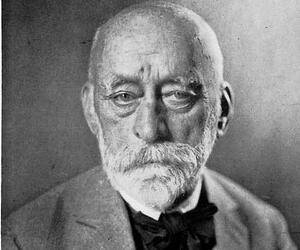
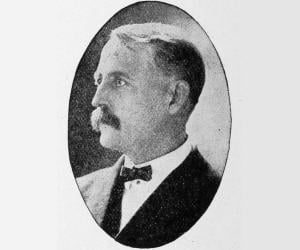
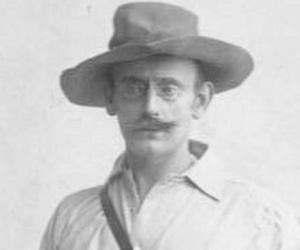
Carl Peters was a German explorer, colonial ruler, author, and politician. He is best remembered for founding the German East Africa Company. His life and career inspired the 1941 propaganda movie Carl Peters, in which Peters was played by popular German actor and singer Hans Albers.
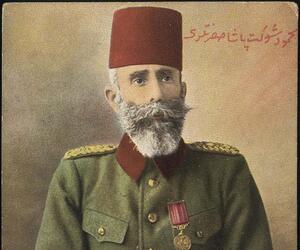
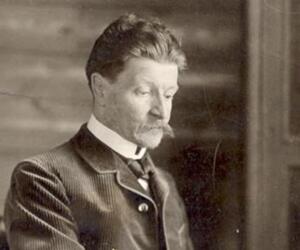
Mikhail Vrubel was a Russian painter best remembered for his expertise in all genres of art, such as painting, graphics, theatrical art, and decorative sculpture. At the start of the 20th century, his art became an integral part of Art Nouveau. In 1905, Mikhail Vrubel was honored with the title Academician of Painting.
